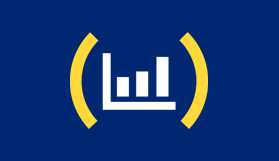Bolstering regional Australians fight against blood cancer

The Leukaemia Foundation’s Regional, Rural and Remote (RRR) Blood Cancer Control Program is set to tackle the challenge of providing timely blood cancer diagnosis and support to Australians living outside of capital cities.
“It's extremely frustrating to think that something as trivial as your postcode could have an impact on your chances of receiving a timely diagnosis for blood cancer, which then affects your chances of surviving,” says Leukaemia Foundation Philanthropy Manager, Rachael Moss.
“But that is the reality. We need a more level playing field in terms of diagnosis and treatment.”
Almost 6,000 Australians die each year from blood cancer with those in regional, rural and remote communities at particular risk, according to Leukaemia Foundation CEO, Chris Tanti.
“Over the next decade this number is expected to increase to 15,000 per year,” Chris says. “Bold action and investment are needed in order to shift this dial closer to zero.”
Only 28 per cent of Australians live outside of metropolitan areas, yet they account for 41 per cent of blood cancer incidence. Health inequality is a key reason.
Lack of understanding and recognition of blood cancer symptoms contributes to later diagnoses. Rural Australians also face navigating greater distances (which can increase costs) to receive specialist health care.
The RRR Program plans to even the playing field by improving diagnoses and treatment, says Leukaemia Foundation General Manager of Blood Cancer Partnerships, Tim Murphy.
“Our intention is to extend our model of care to start at symptoms awareness and bolster our survivorship interventions, which will lead to prompt diagnosis, referral to appropriate care and people to live well beyond a blood cancer diagnosis. By doing so we hope to decrease the disparity in blood cancer survival for RRR Australians.”
Almost one-third (29 per cent) of the 6,000 annual blood cancer deaths could be prevented if best practice was rolled out nationally.
The RRR Program components are aimed at improving patient outcomes through:
- Raising awareness of blood cancer signs and symptoms for primary healthcare professionals, such as allied health staff and nurses.
- Enhancing support to GPs at the point of care, by enabling an automated alert within GPs’ electronic workflow for a probable case of blood cancer.
- 'Phone a Friend’ consultations between GPs and specialists to seek advice when blood cancer symptoms are present or when treating a patient living with blood cancer.
- Implementing a blood cancer wellness program.
“Rapid co-design last year has resulted in four interventions for testing in pilot locations,” Tim says.
“Each intervention is designed to improve patient outcomes and provide GPs with support at different points in the healthcare pathway – they are a combination of increasing community awareness through education of primary health care staff, assisting GPs through digital triage tools and facilitating a shared care model between primary and tertiary services.”
The Leukaemia Foundation has already received philanthropic investment for the program from visionary donors who have provided seed funding for the pilot. They have also been the grateful recipient of several philanthropic trusts managed by Equity Trustees to date. We encourage other visionary partners to consider the impact of this program on outcomes for RRR Australians living with blood cancer when making future investments.



